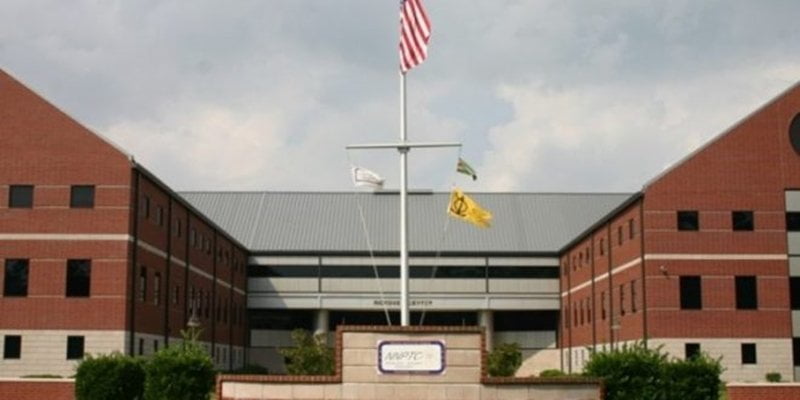Nuclear engineers are people who work with nuclear energy, nuclear waste, medical physics and also in nuclear research. USA has some of the top institutions that offer the best nuclear engineering programs globally. With a nuclear engineering degree from a university in the USA, you are at the forefront to make discoveries that potentially can change the world.
Here’s our overview of the nuclear engineering studies in the USA along with some of the universities where you can pursue a degree in the subject.
Read also our guide on civil engineering studies in the US.

Table of Contents
Study Nuclear Engineering in the USA
Nuclear engineering departments can offer more research opportunities to students. Nuclear engineers work with powerful elements that provide energy to most parts of the world. At the same time, it might represent a threat to humanity and the environment if they are not properly controlled and disposed of.
These professionals must have the appropriate education and training to succeed in this area. Moreover, they should be aware of how the materials they work affect people and the environment.
What is Nuclear Engineering?
This field develops nuclear equipment such as radiation shielding, core reactors, and equipment necessary to operate and monitor nuclear equipment. Other applications include food production, marine propulsion systems, pharmaceuticals, industrial production, as well as the development of nuclear weapons.
Bachelor’s Degree in Nuclear Engineering
The duration of this degree is 4 years. Basically, nuclear engineers must have at least this bachelor’s degree to secure a junior position. On the other hand, some jobs require master’s degrees or special certificates.
Certainly, aspiring nuclear engineering students should look for programs accredited by the Accreditation Board for Engineering and Technology (ABET). Indeed, Accreditation Board for Engineering and Technology (ABET) plays a key role in ensuring quality education that meets high standards.
ABET accreditation may also be required for some graduate programs in nuclear engineering, financial assistance opportunities and even for future employers. Being that, students can earn ABET-accredited certificates online or on campus.
As a matter of fact, bachelor’s degree programs in nuclear engineering provide the foundation that students need to secure employment, obtain a license, obtain certificates and complete graduation from school. Furthermore, students may choose to study in related fields before obtaining a postgraduate degree in nuclear engineering.
Admission Requirements for Bachelor’s Degree Programs
Certainly, each nuclear engineering program sets its own admission criteria. Usually the harder the program, the higher the level of requirements are. This may be clear in staff such as the more competitive GPA, tests, and even admissions interviews with faculty.
Here are some examples of typical admission requirements from current nuclear engineering schools:
- Minimum Cumulative High School of 3.0.
- Successful completion of prerequisite high-school courses such as Chemistry, Physics, Algebra, Trigonometry, and Calculus.
- The student should not have a shortage in certain areas such as mathematics, science, or English.
- SAT or ACT scores.
- Acceptance Article or Statement of Purpose.
- Complete the FAFSA (Financial Assistance Form).
MS in Nuclear Engineering in USA
Basically, the duration of this program is two years. Although a master’s degree is not necessary to access the field of nuclear engineering, it can extend individual access to employment. Especially in the most advanced positions, both the academic and management.
Moreover, master’s degree students in nuclear engineering often specialize in nuclear science and technology, fissionable nuclear technology, applied plasma physics, or radiation detection and application.
Requirements for Nuclear Engineering Master’s Programs in USA
The following admission requirements are taken from real schools across the United States. Note that requirements can vary greatly from program to another.
For example, some master’s programs only accept candidates with a certain number of years of professional experience in the field of engineering. While others accept students directly from undergraduate programs.
Admission requirements are:
- Bachelor of Science degree in Engineering or related discipline.
- Letters of recommendation.
- Minimum Cumulative (GPA) of 3.0 in the last 60 hours of undergraduate courses.
- Official grading reports meet the minimum requirements for these tests: GMAT, GRE or MAT.
- Official university texts.
- Professional CV or CV with qualified experience.
- Statement of Purpose.
- Required Articles.
Cost of Study
At last, the cost of Nuclear Engineering in America varies greatly, depending on the country, institution, and course. Being that, as an international student, you may have to pay higher fees. As an illustration, the cost of a post-graduate program for engineering graduates in America ranges from $20,000 to $60,000.
Best universities for nuclear engineering
There are over 101 nuclear engineering programs you can choose from in the USA. We have selected 7 of what we thought are the best schools you can check out if you want to study nuclear engineering.
Georgia Tech
The Georgia Tech Institute of Technology offers a bachelor’s degree program in Nuclear and Radiological Engineering. Students can then major either in radiological science and engineering or in nuclear engineering. Basic principles courses include criticality safety, detection instruments, materials management, nuclear power economics to name a few.
MIT
The best engineering school in the USA and by extension, in the world, is also one of the elite schools where you can study nuclear engineering. The institution’s Department of Nuclear Science & Engineering offers a Bachelor of Science degree, which is among the best degree programs in the marketplace.
North Carolina State University
NC State University offers one of the finest bachelor’s degree program in Nuclear Engineering in the state and in the US. The program stands out with the fact that students can opt for a program combo of accelerated baccalaureate and master’s. Classes for this major include energy thermodynamics, fluid mechanics, nuclear reactor energy conversion, etc.
University of Michigan – Ann Arbor
The University of Michigan is another high-profile institution for engineering degrees in the US. It’s no surprise then, that the university provides a BS in Nuclear Engineering and Radiological Sciences among their academic specialties. Students can then specialize in fission systems/radiation transport, materials & radiotin effect, radiation measurements as well as plasmas/nuclear fusion.
University of Illinois, Urbana-Champaign
The Grainer College of Engineering of the University of Illinois also offers a bachelor of science in Nuclear, Plasma and Radiological Engineering. Students then have to choose between 3 academic specializations: radiological, medical & instrument applications, plasma & fusion, and power, safety & the environment. They graduate after they complete 128 credit units.
Related topics :
The most affordable cities for international students in USA
The living and studying cost in the USA for international students.




 Aljawaz Your guide to study abroad
Aljawaz Your guide to study abroad
























